Are you the proud owner of a vacation home? If so, you probably enjoy the peace and relaxation that comes from getting away from it all. However, one thing you definitely don’t want to escape to is a pest infestation. In this article, we’ll explore why pest control in vacation homes is so important, and provide you with tips and solutions to ensure that your home away from home remains pest-free. From common pests that are attracted to vacant properties to preventative measures you can take, we’ve got you covered. So rest easy and read on to learn how to protect your vacation haven from unwanted visitors.
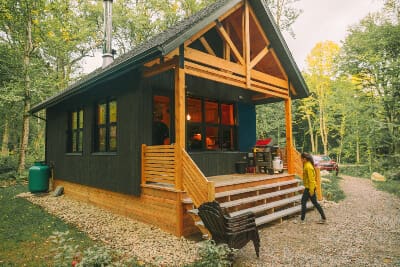
Overview of Pest Control in Vacation Homes
Vacation homes provide a much-needed getaway from the hustle and bustle of daily life. However, it is essential to ensure that these homes are not plagued by pests that can spoil the entire vacation experience. In this comprehensive guide, we will explore the importance of pest control in vacation homes, common pest issues that homeowners may encounter, and the impact of pest infestation on the vacation experience.
Importance of Pest Control in Vacation Homes
When it comes to vacation homes, pest control is of paramount importance. Vacationers seek a clean and comfortable space to relax and unwind, and pests can ruin this ideal atmosphere. Not only can pests cause damage to the property, but they can also pose health risks to guests, leading to an unpleasant and potentially unsafe vacation. Implementing proper pest control measures ensures that the vacation home remains pest-free, providing a pleasant and enjoyable experience for all who visit.
Common Pest Issues in Vacation Homes
Vacation homes are susceptible to various pest issues. Some of the most common pests that homeowners may encounter include rodents, bed bugs, termites, ants, mosquitoes, cockroaches, fleas, and ticks. These pests can infiltrate the home through various entry points and wreak havoc on the property. Understanding these common pest issues is crucial for effective pest control and prevention in vacation homes.
Impact of Pest Infestation on Vacation Experience
Pest infestations in vacation homes can significantly impact the overall vacation experience. Imagine waking up to bed bug bites or being constantly bothered by ants invading your food. Such situations can cause distress and discomfort, ruining the much-needed relaxation time. Infestations can also result in property damage, leading to costly repairs and inconvenience for homeowners. It is vital to address pest issues promptly to ensure an enjoyable and stress-free vacation experience.
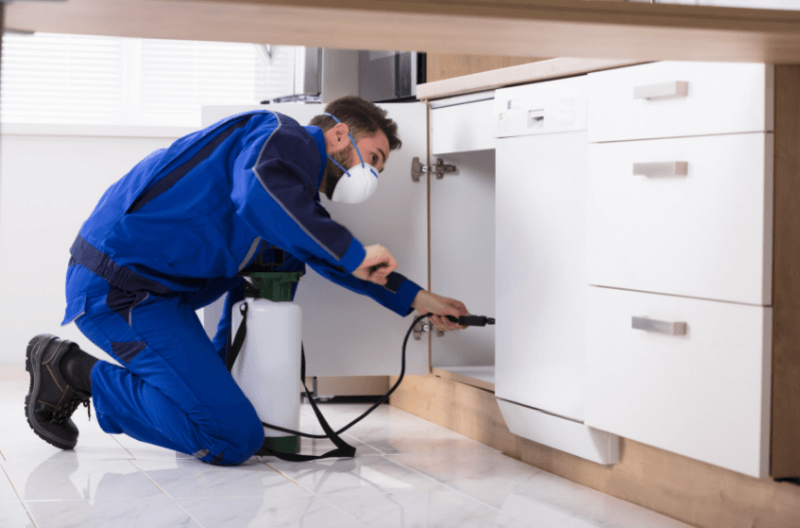
Prevention and Maintenance
Preventing pest infestations in vacation homes can save homeowners from the hassle and expense of dealing with pests. Here are some effective prevention and maintenance tips to keep pests at bay:
Sealing Entry Points
One of the first steps in pest prevention is sealing off any entry points that pests may use to infiltrate the home. Inspecting the property for gaps, cracks, and openings is essential to identify potential entry points. Seal them using caulk or weatherstripping to create a barrier that pests cannot penetrate.
Regular Cleaning and Maintenance
Regular cleaning and maintenance of the vacation home are crucial to prevent pest infestations. Vacuuming carpets and upholstery, sweeping floors, and wiping down surfaces eliminate food residues and potential nesting sites for pests. Additionally, ensure that the trash is regularly emptied and that any spills or crumbs are promptly cleaned up.
Proper Garbage Disposal
Proper garbage disposal plays a significant role in pest prevention. Keep trash cans tightly covered and emptied regularly to avoid attracting pests. It is also advisable to clean the garbage cans regularly to remove any odors that may attract pests.
Landscaping and Vegetation Control
Maintaining the landscape surrounding the vacation home is essential for pest control. Overgrown vegetation and cluttered outdoor areas can provide shelter and breeding grounds for pests. Keep the lawn mowed, trim bushes and trees, and remove any standing water to deter pests from taking up residence near the property.
Effective Pest Control Methods
Implementing effective pest control methods is crucial in maintaining a pest-free vacation home. Here are some tried and tested techniques homeowners can consider:
Chemical Solutions
Chemical solutions are commonly used in pest control to eliminate and repel pests. Insecticides, rodenticides, and repellents can be effective in eradicating pests, but they should be used with caution. It is recommended to consult professional pest control services or carefully follow the instructions on the product labels to ensure safe and effective application.
Natural and Organic Pest Control
For those who prefer eco-friendly approaches, natural and organic pest control options are available. Essential oils, homemade repellents, and natural predators can help deter pests without harmful chemicals. These methods offer a sustainable and safer alternative for pest control in vacation homes.
Integrated Pest Management (IPM) Approach
Integrated Pest Management (IPM) is a holistic approach to pest control that combines multiple methods to achieve the best results. It involves identifying pests, assessing the level of infestation, and implementing multiple strategies tailored to the specific situation. IPM focuses on prevention, monitoring, and using the least toxic methods first before resorting to chemical solutions.
Professional Pest Control Services
In cases where pest infestations are severe or difficult to manage, seeking professional pest control services is recommended. Licensed pest control professionals have the expertise and tools to effectively identify and eliminate pests from vacation homes. Regular inspections and treatment plans can ensure long-term pest control and prevent future infestations.
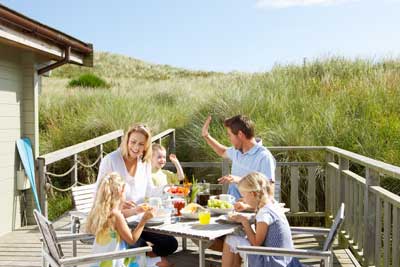
Pest Control for Specific Pests
Different pests require specific pest control measures to eradicate and prevent their presence in vacation homes. Let’s explore some commonly encountered pests and the corresponding pest control methods:
Bed Bugs
Bed bugs are tiny, blood-sucking pests that infest mattresses, furniture, and upholstery. To eliminate bed bugs, thorough cleaning, washing bedding on high heat, and professional heat treatments may be necessary.
Termites
Termites can cause extensive damage to the structure of vacation homes. Professional termite inspections, preventive treatments, and regular monitoring are essential to prevent severe infestations and costly repairs.
Ants
Ants are among the most common pests found in vacation homes. Identifying and eliminating ant entry points, using ant baits, and maintaining proper sanitation can help keep these pests under control.
Mosquitoes
Mosquitoes not only cause itchy bites but also pose health risks due to their ability to transmit diseases. Removing standing water, using screens on windows and doors, and applying mosquito repellents are effective ways to prevent mosquito infestations.
Rodents
Rodents can cause property damage and carry diseases. Sealing entry points, setting traps, and implementing rodent-proofing measures help control and prevent rodent infestations in vacation homes.
Cockroaches
Cockroaches are resilient pests that can contaminate surfaces and trigger allergies. Proper sanitation, sealing cracks and openings, and using cockroach baits and traps are effective methods of control.
Fleas and Ticks
Fleas and ticks can be brought into vacation homes through pets or outdoor activities. Regular grooming of pets, vacuuming carpets and upholstery, and professional pest treatments can help eradicate and prevent infestations.
Preventing Pest Infestations During Vacancy
Vacant vacation homes are particularly susceptible to pest infestations. Here are some preventive measures to ensure pests do not take over in the homeowner’s absence:
Thorough Cleaning Before Leaving
Before leaving the vacation home unoccupied, ensure a thorough cleaning is done. Remove all food residues, vacuum the entire property, and dispose of any trash or perishables. A clean and empty home minimizes the appeal to pests.
Sealing Cracks and Openings
Inspect the property for any cracks or openings that pests can use as entry points. Seal them off using caulk or weatherstripping to prevent pests from accessing the interior of the home.
Proper Food Storage and Disposal
Ensure that all food items are securely stored in airtight containers to prevent pests from accessing them. Additionally, dispose of any perishable items before leaving to avoid attracting pests.
Monitoring for Signs of Infestation
Regularly monitor the vacation home for signs of pest infestation, both before and after leaving. Look for droppings, gnaw marks, damaged items, or any other indications of pests. Early detection allows for prompt action to prevent infestations from worsening.
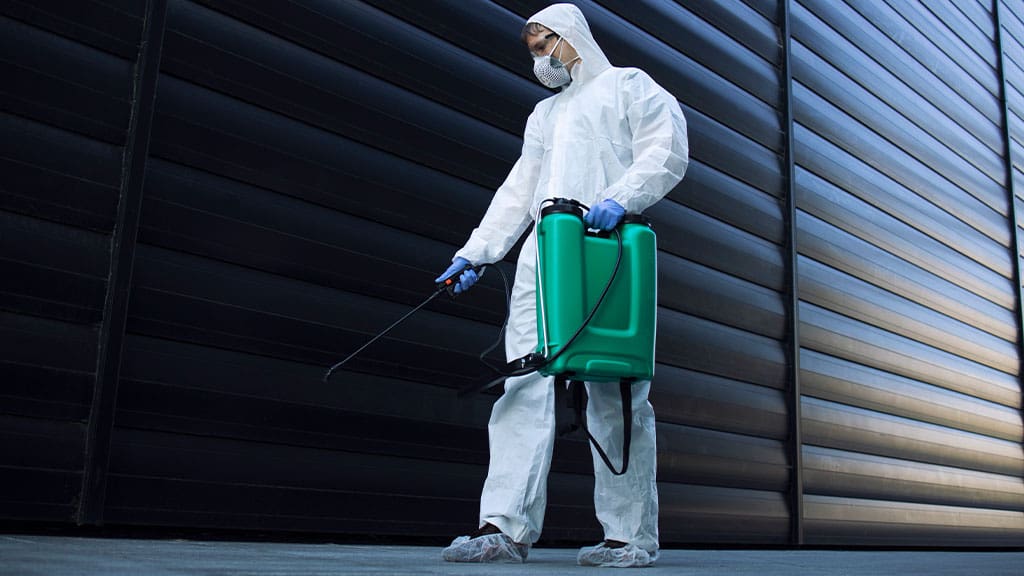
Tips for Pest-Free Vacation Homes
Maintaining a pest-free vacation home requires proactive measures and ongoing vigilance. Here are some additional tips to help homeowners achieve a pest-free environment in their vacation homes:
Effective Outdoor Lighting
Installing effective outdoor lighting can deter pests from approaching the property. Light fixtures that minimize attracting insects and motion-activated lights can help keep pests away.
Proper Ventilation and Humidity Control
Proper ventilation and humidity control are essential in preventing excess moisture, which can attract pests. Ensure that bathrooms and kitchens are properly ventilated and use dehumidifiers in areas prone to high humidity.
Regular Inspections
Regular inspections of the vacation home, both indoors and outdoors, can help identify any potential pest issues promptly. Check for signs of pest activity, entry points, and any areas that may require maintenance or additional pest control measures.
Educating Guests on Pest Prevention
Providing guests with information on pest prevention can contribute to a pest-free vacation home. Include guidelines on proper sanitation, food storage, and reporting any signs of pests. By educating guests, the entire community can participate in maintaining a pest-free environment.
Product Reviews
There are several products available in the market that can assist homeowners in their pest control efforts. Here are some categories of products that are commonly used in pest control:
Pest Repellants and Traps
Pest repellants and traps offer a proactive approach to pest control. From mosquito repellants to rodent traps, there is a wide range of products designed to repel or eliminate specific pests.
Cleaning and Disinfecting Products
Proper cleaning and disinfection are crucial for pest prevention. There are various cleaning and disinfecting products available that not only remove dirt and grime but also help eliminate potential pest attractants.
Sealants and Caulks
To effectively seal entry points and keep pests out, using quality sealants and caulks is essential. There are sealants specifically designed for pest prevention, ensuring a tight seal against unwanted invaders.
Home Security Systems
Home security systems can play a significant role in pest control. Motion sensors and surveillance cameras can help identify and prevent pests from accessing the property. Integration of pest control measures with home security systems can add an extra layer of protection.
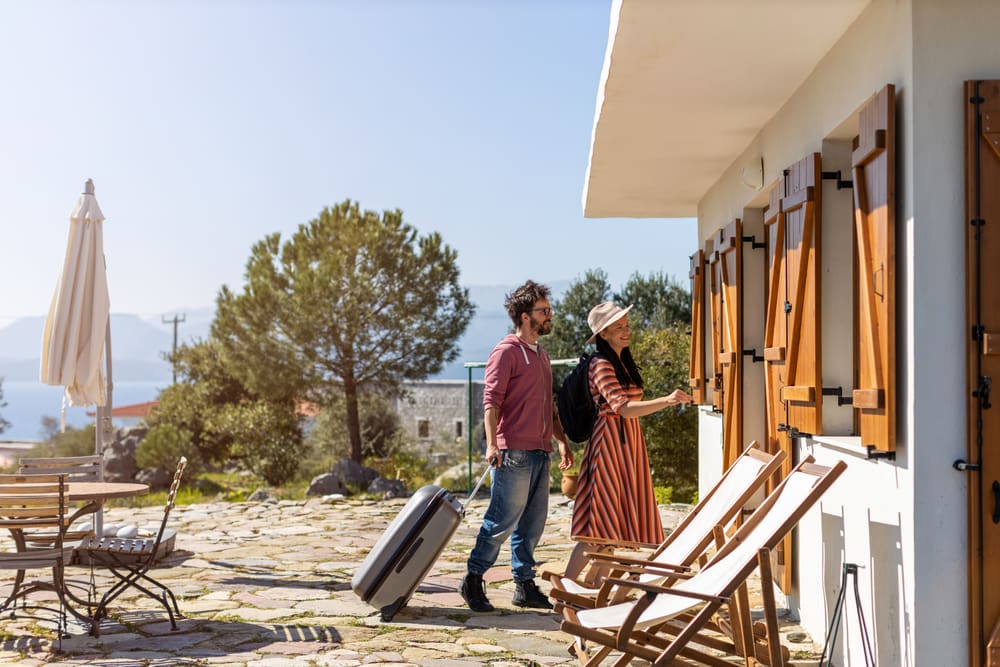
Ensuring Safety with Pest Control
While pest control is vital in maintaining a pest-free vacation home, it is equally important to ensure safety throughout the process. Consider the following factors to promote safe pest control practices:
Potential Health Risks
Certain pests and the chemicals used for their control can pose health risks. Educate yourself about the potential health risks associated with specific pests and chemicals. Always follow safety guidelines and consider non-toxic pest control options when suitable.
Non-Toxic Pest Control Options
Non-toxic pest control options are available for homeowners concerned about using chemical solutions. From natural pest repellents to biological control methods, these options prioritize safety while still effectively managing pests.
Safety Measures for Chemical Treatment
If chemical treatments are necessary, it is essential to prioritize safety. Use protective equipment as instructed, keep children and pets away from treated areas, and follow the recommended waiting period before re-entering the treated space.
Legal Compliance and Regulations
When implementing pest control measures, homeowners must be aware of and comply with local regulations. Some jurisdictions may have restrictions on certain chemicals or require licensing for professional pest control services. Understanding and adhering to these regulations promotes responsible pest control practices.
DIY vs. Professional Pest Control
Determining whether to handle pest control as a do-it-yourself (DIY) project or hire professional services depends on various factors. Consider the following aspects when making this decision:
Advantages of DIY Pest Control
DIY pest control can be cost-effective and allow homeowners to take immediate action when faced with a pest issue. It provides a hands-on approach and can be a practical solution for minor infestations or routine prevention.
When to Call a Professional
While DIY methods can be effective in certain cases, professional pest control services are crucial when faced with severe infestations or complex pest issues. Professionals have the expertise, experience, and resources to identify and address pest infestations effectively.
Choosing Reliable Pest Control Services
When opting for professional pest control services, it is important to choose a reliable and reputable provider. Research local pest control companies, read customer reviews, and inquire about their methods and certifications. Selecting a reliable service ensures the effectiveness and safety of pest control treatments.
Conclusion
Ensuring a pest-free vacation home is crucial for an enjoyable and stress-free getaway. By implementing effective prevention and maintenance strategies, utilizing appropriate pest control methods, and taking proactive measures to prevent infestations during vacancy, homeowners can create a comfortable and pest-free environment. Regular inspections, educating guests, and being aware of safety measures contribute to a successful pest control plan. Whether opting for DIY pest control or professional services, the goal remains the same – a pest-free vacation home that provides a memorable and relaxing experience for all who visit.

I am Randy, the author behind PestControld.com. Drawing from decades of experience, I aim to provide valuable insights, expert advice, and practical recommendations to help you make informed decisions when assessing viable pest control solutions.